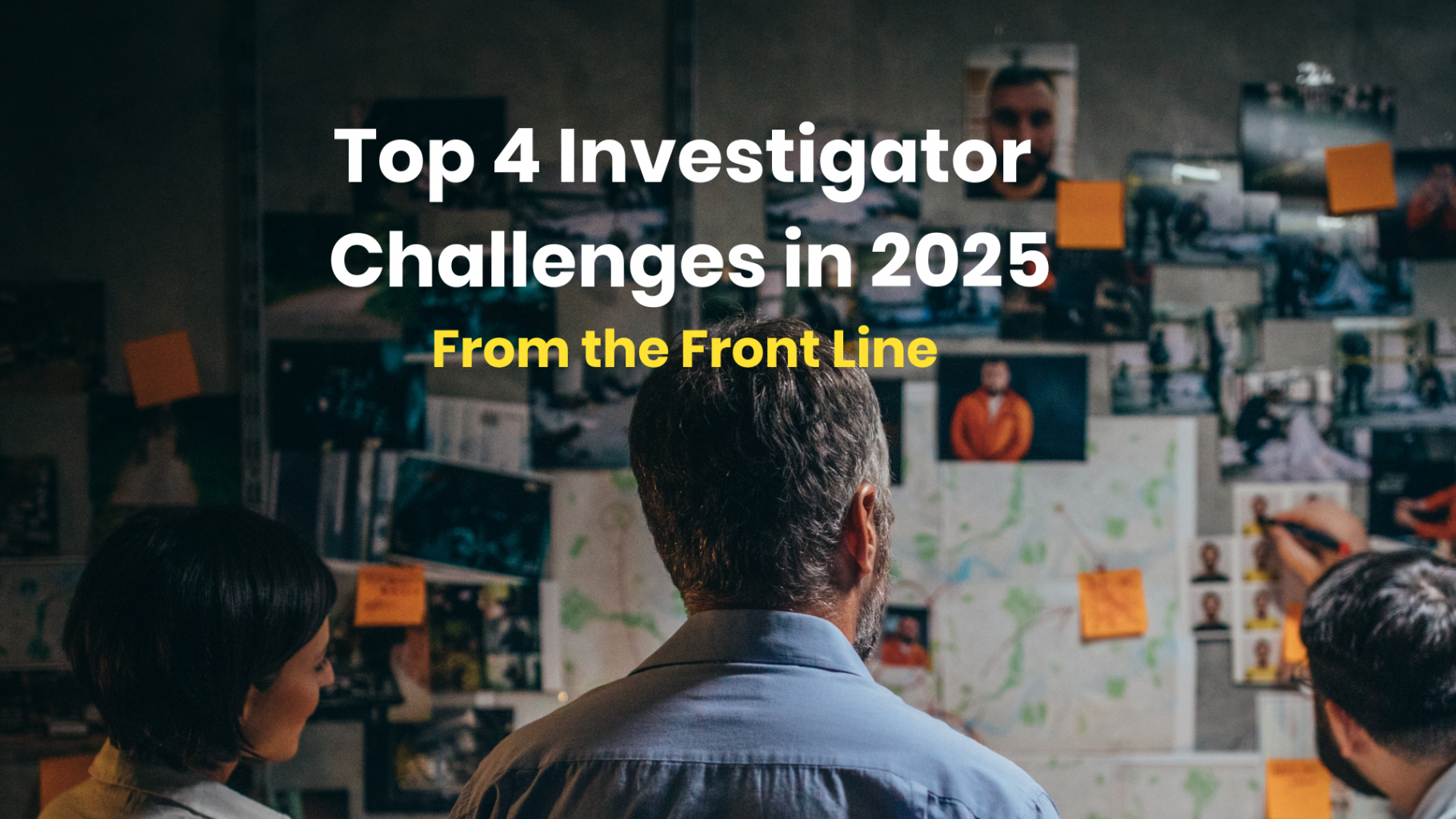
With over 10 years of experience as a former police officer and investigator, and a further 11 years now consulting with criminal investigation teams across multiple forces, it’s very clear to me how investigations have transformed. Supporting active police teams and private sector investigators has given me unique insights into the frustrations within the community. Here are my top 4 challenges in 2025.
1. Technology Has Changed Evidence Gathering
Whilst the core of investigation still remains answering the fundamental questions “What? Where? When? Why? Who? and How?” the backdrop has dramatically changed.
Technology has had a massive impact and transformed evidence gathering. Investigators are now blending traditional methods with digital evidence collection, pulling together data from smart devices, social media, cryptocurrency trails and numerous other sources. Whilst the core principles remain solid, the technical skills needed have expanded significantly. Teams need to try and keep a balance of traditional expertise with these new digital competencies. Don’t forget the basics!
2. The Data Tsunami
In all crimes 99% of the time there is a digital footprint which creates massive challenges. Investigation teams are processing huge amounts of data from devices, cloud storage, social media and surveillance systems. Major crime teams need to develop frameworks for processing and documenting this data while maintaining evidential integrity. The volume of digital evidence has fundamentally changed investigation approaches across the board. Investigators are completely overwhelmed and underskilled.
3. Time-critical Intelligence
Speed has become critically important in modern investigations. The fusion and real-time analysis of HUMINT, SIGINT and OSINT data in a single platform isn’t just convenient, it’s now a necessity. This is particularly important for departments running covert operations, where solid cases must be built on intelligence first before arrests can be made. Investigation teams need to speed up the time to complete their intelligence processing.
4. Crown Prosecution Service Requirements
Supporting law enforcement teams with CPS submissions has highlighted how digital evidence requirements have transformed case preparation. Law enforcement must now submit all digital evidence, relevant or not, significantly impacting investigation timelines. I have worked closely with detective teams to streamline this process whilst maintaining evidential integrity and it’s an ongoing challenge for many departments.
In 2025, successful criminal investigations require this careful blend of traditional and cutting edge approaches. Across the sector, maintaining solid investigative practices while effectively using new technology is crucial. The future of criminal investigation lies in finding this careful balance and never losing sight of basic common sense.
If you would like to know Siren is helping to address these challenges globally, get in touch!



